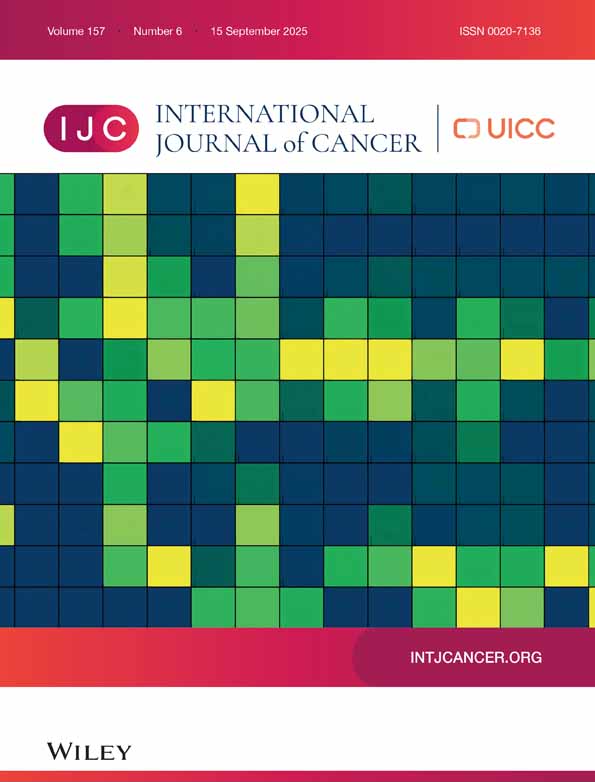Expression of leukocyte cell adhesion molecules on gastric carcinomas: Possible involvement of lfa-3 expression in the development of distant metastases
Abstract
Expression of the cell adhesion molecules ICAM-1 (CD54) and LFA-3 (CD58) was examined on primary gastric carcinomas, autologous benign mucosa and metastatic lesions. Although ICAM-1 was never observed on benign gastric epithelium, even in the presence of chronic inflammation and a strong leukocyte infiltrate, 38% (26/69) of the primary tumors expressed this molecule. ICAM-1 was restricted to differentiated tumors and correlated with the presence of leukocytes and the absence of vessel invasion. The ICAM-1 expression pattern of metastatic lesions reflected that of the primary tumor, suggesting that most tumors retain the non-inducible phenotype seen in normal mucosa while some become cytokine-sensitive. ICAM-1 expression showed no correlation with tumor relapse or survival. LFA-3 was absent from 8% (4/49) of the primary tumors and reduced (e.g., ± 50% positive cells) in 33% (16/49). Expression of LFA-3 by more than 50% of the tumor cells correlated with cellular dedifferentiation (G3, G4), histologically detectable vessel invasion, tumor recurrence and decreased survival time. Primary tumors and metastases in draining lymph nodes demonstrated a broad range of LFA-3 expression. In contrast, distant metastases (liver and peritoneum) had uniformly high frequencies of LFA-3-positive cells, suggesting a selective advantage for these cells in the establishment of distant metastases. © 1995 Wiley-Liss, Inc.




